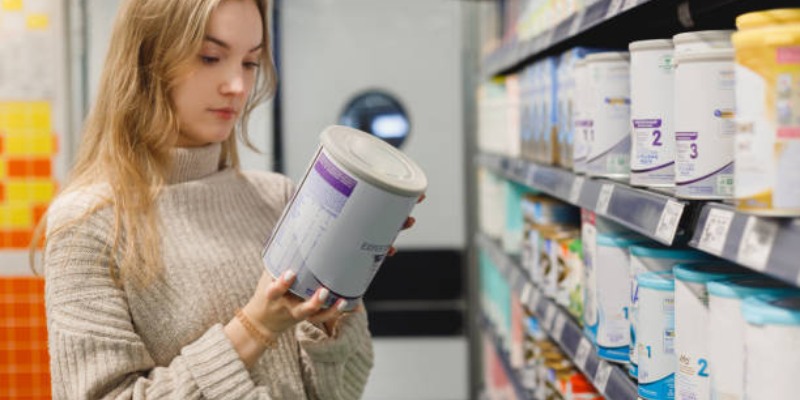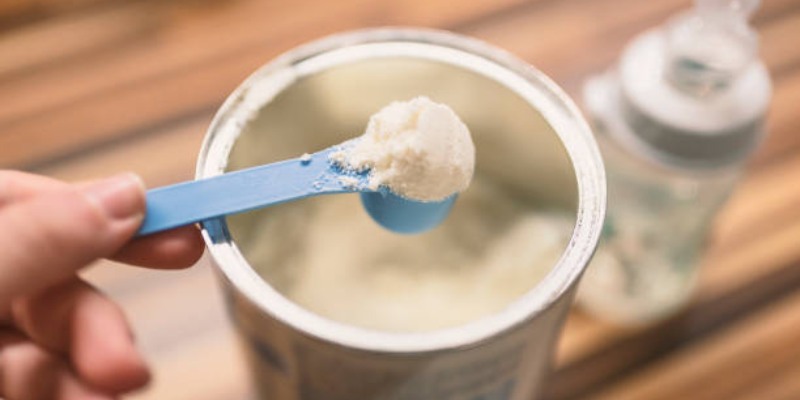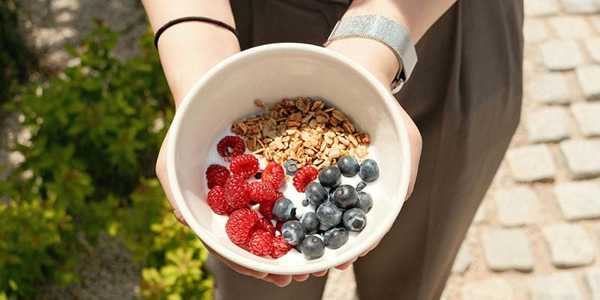Best Baby Formulas Recommended By Paediatricians

Parents want the best for their babies. From the crib to the diapers, every choice is made with care. When it comes to feeding, even more caution is needed. Not every baby formula is equal, and not every label on the shelf deserves a place in a feeding bottle. Paediatricians are aware of this, which is why they recommend specific baby formulas that are safe, nutritious, and trusted.
Types Of Baby Formula
Babies require the proper nutrition to grow, develop their brains, and maintain good health. While breast milk is the best choice, many families use formula for different reasons. According to the American Academy of Paediatrics , infant formula must meet strict nutritional standards to serve as a safe substitute.
Most baby formulas fit into these types:
Cow’s Milk Formula:
The most common type, designed to be as close to breast milk as possible, works well for most babies.
Soy Formula:
Used when babies can't tolerate lactose or when families prefer a plant-based option.
Hydrolysed Formula:
The proteins are broken down to make them easier to digest, which is helpful for babies with allergies.
Speciality Formula:
Made for babies with specific health needs, like reflux or certain medical conditions.
Before buying baby formula, it's helpful to know what your baby needs. If you are unsure, consult your paediatrician for guidance.

Top Baby Formulas Paediatricians Trust
Similac Pro-Advance
Similac Pro-Advance is popular among paediatricians. It is designed to be close to breast milk and contains 2'-FL HMO, an immune-nourishing prebiotic. Many hospitals recommend Similac for healthy newborns who need formula supplementation. It also contains DHA, lutein, and vitamin E, which support brain and eye development. Parents appreciate that it is non-GMO.
Enfamil NeuroPro Infant Formula
Enfamil NeuroPro is another name frequently mentioned in pediatric clinics. It includes a fat-protein blend of MFGM and DHA, which supports brain development and function. The formula is designed for easy digestion and provides complete nutrition through a baby's first year. Paediatricians trust Enfamil because of its long record of research-backed formulations.
Gerber Good Start GentlePro
Gerber Good Start GentlePro is made for babies with sensitive stomachs. It utilises partially hydrolysed whey proteins to aid digestion and reduce fussiness. Paediatricians suggest this option when babies show mild gas or colic issues. The formula also includes probiotics to help develop healthy gut bacteria.
Earth’s Best Organic Dairy Infant Formula
Parents seeking organic options often receive recommendations for Earth's Best Organic Formula. Paediatricians recommend it for families who want certified organic milk-based formula, free from harmful chemicals and GMOs. It has iron, DHA, and ARA, matching the basic standards set by the FDA.
What Paediatricians Say About Choosing Formula
Doctors advise parents not to switch formulas frequently without consulting a healthcare professional. If a baby shows signs of an allergy, such as a rash, diarrhoea, or excessive fussiness, parents should consult a paediatrician before making any changes. Many paediatricians also remind parents that expensive does not always mean better. The focus should be on whether the formula meets FDA standards and fits the baby's needs.

Powder, Liquid, or Ready-to-Feed?
Formulas come in three forms: powder, liquid concentrate, and ready-to-feed. Paediatricians often recommend powdered formula for healthy, full-term babies because it is cheaper and easier to store. Ready-to-feed is valid for travel or when the water supply is not clean. Regardless of the choice, bottles must be sterilised, and formulas must be prepared according to the package directions.
Formula Safety: What to Avoid
Paediatricians caution against homemade formulas. Social media sometimes pushes recipes that claim to be natural substitutes for store-bought infant formula. These recipes often lack key nutrients and may put babies at risk of malnutrition.
Parents should also avoid expired products and always store formula in a cool, dry place. The opened formula should be used within the time frame given on the label to prevent contamination.
Cost vs. Quality
Baby formula costs can add up, and parents often seek more affordable options. Paediatricians recommend using store brands only if they meet the same nutritional standards as those of national brands or the leading brands. Many generic brands sold by big retailers follow strict FDA guidelines and can be safe alternatives. Still, switching brands should be discussed with a doctor if the baby has special feeding needs.
When to Consider Switching
A baby's feeding journey is not always smooth. If a baby shows signs of severe allergy or lactose intolerance, a paediatrician may recommend hydrolysed or amino acid-based formulas. Some babies may have reflux or spit-up issues that require special thickened formulas. Pediatric guidance is necessary before making any significant changes to a baby’s diet.

Getting Support
Choosing the right formula can feel stressful, but parents are not alone. Paediatricians, lactation consultants, and nutritionists help families pick what works best. Parents who notice changes in their baby's feeding habits, weight gain, or stool pattern should consult a healthcare professional promptly.
Health Over Trends
In today's world, many products carry labels that promise the best for babies. Organic, non-GMO, grass-fed, and premium-sourced ingredients sound great, but paediatricians say the focus should stay on health and safety. Fancy branding should not replace science-backed facts.
Parents can also learn more about safe infant nutrition from trusted resources, such as the World Health Organisation.
Sources
American Academy of Paediatrics. Infant Formula.
Centres for Disease Control and Prevention. Infant Nutrition.










